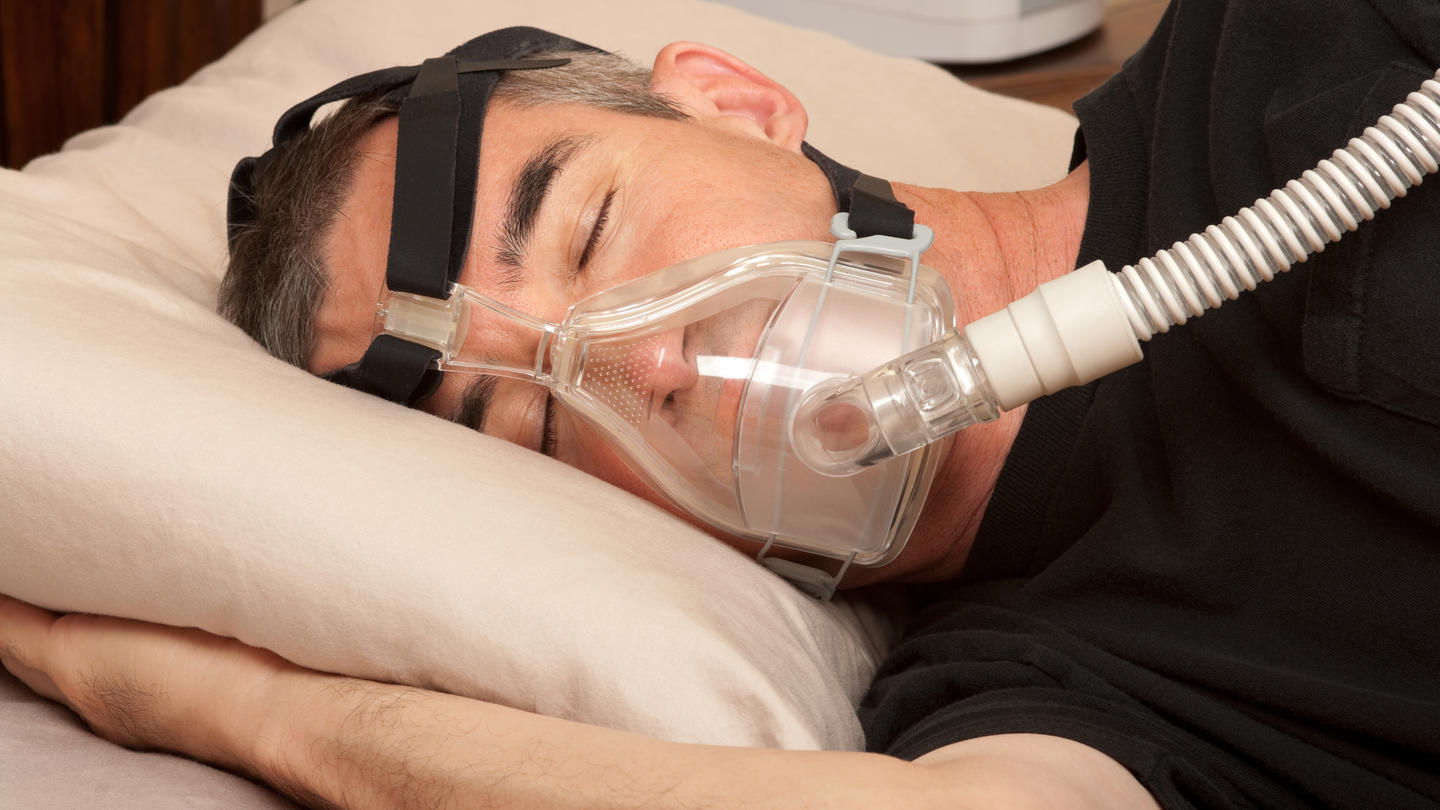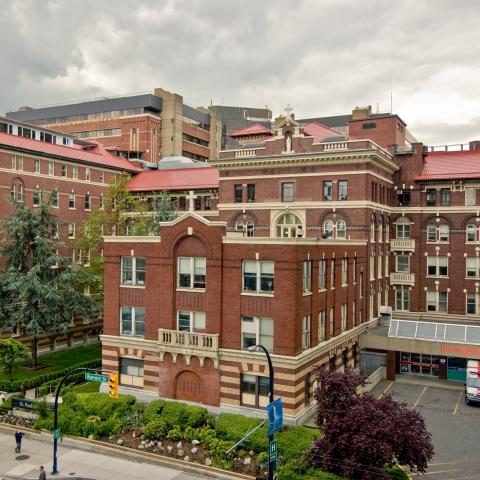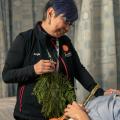Sleep apnea
An overview of Providence Health Care’s services and resources for adults experiencing sleep apnea.
Overview
Sleep apnea is a significant condition that interrupts your breathing multiple times during sleep. These pauses, called "apneas," can last 10 to 30 seconds and can occur many times throughout the night.
The most common type of sleep apnea is obstructive sleep apnea. This happens when the upper airway gets blocked during sleep. Often, the blockage happens when the soft tissue in the back of the throat collapses and closes during sleep. Relaxed throat muscles, a narrow airway, a large tongue or extra fatty tissue in the throat can also block the airway.

Diagnosis & testing
When admitted to one of our Providence Health Care sites, your doctor may request a nocturnal oximetry study or a sleep study. A Respiratory Therapist will visit you, inform you of the test and explain what it involves. They will also set you up with the equipment and monitor you through the night. The Respiratory Therapist will collect your test data and make a report for the Respirologist to interpret. Result times can vary between 24 hours and 7 days.
Outpatient testing
The Pulmonary Function Lab at St. Paul's Hospital and Mount Saint Joseph Hospital can organize overnight oximetry tests (a test used to measure the oxygen level of the blood). If the study shows you need more tests, your Respirologist may send you to the UBC Sleep Disorders Clinic.
Treatment & management
There are many ways to manage sleep apnea. Sometimes the treatment of sleep apnea requires lifestyle changes, mouthpieces, breathing devices, or surgery. Lifestyle changes may include avoiding alcohol, weight loss, stopping smoking, and sleeping on your side. If indicated, your doctor will prescribe a CPAP (continuous positive airway pressure) or BiPAP (bilevel positive airway pressure) machine. There are several suppliers throughout the province. Extended Health or other benefits sometimes cover costs.
Treating sleep apnea is important. If untreated, it can increase the risk of heart attack, stroke, diabetes, heart failure, irregular heartbeat, obesity, and car accidents.
Clinics that treat sleep apnea
Support services
Support for Indigenous Peoples
The Indigenous Wellness Liaison Team is here to support your health journey. Team members offer cultural support and healthcare advocacy. Learn more below or call them at 604-682-2344,62937 or email IWL@providencehealth.bc.ca.
Education & resources
Patient education
Providence Health Care provides many useful Patient Health Education Materials that are available as PDF downloads. Those related to sleep apnea are listed here.
Clinical trials & research
Advances in sleep apnea treatments are all thanks to medical research. While participating in research is a decision you should make for yourself in consultation with your care team, there is much activity in this area so please ask us about our research programs if you’re interested.
By taking part in research, you can help us all learn more about sleep apnea and find better ways to help people like you live and thrive with the condition. While you cannot assume benefit to yourself, your participation can make a difference in improving care for future patients.
The following clinical trials are currently enrolling volunteers. Please ask your care team for more information or contact the research team listed on each study or trial. For other information about research at Providence Health Care, please visit Providence Research.
News & stories
Last reviewed: April 3, 2025


